Organ donors' selfless acts supersede old notions on death and human body, local officials say
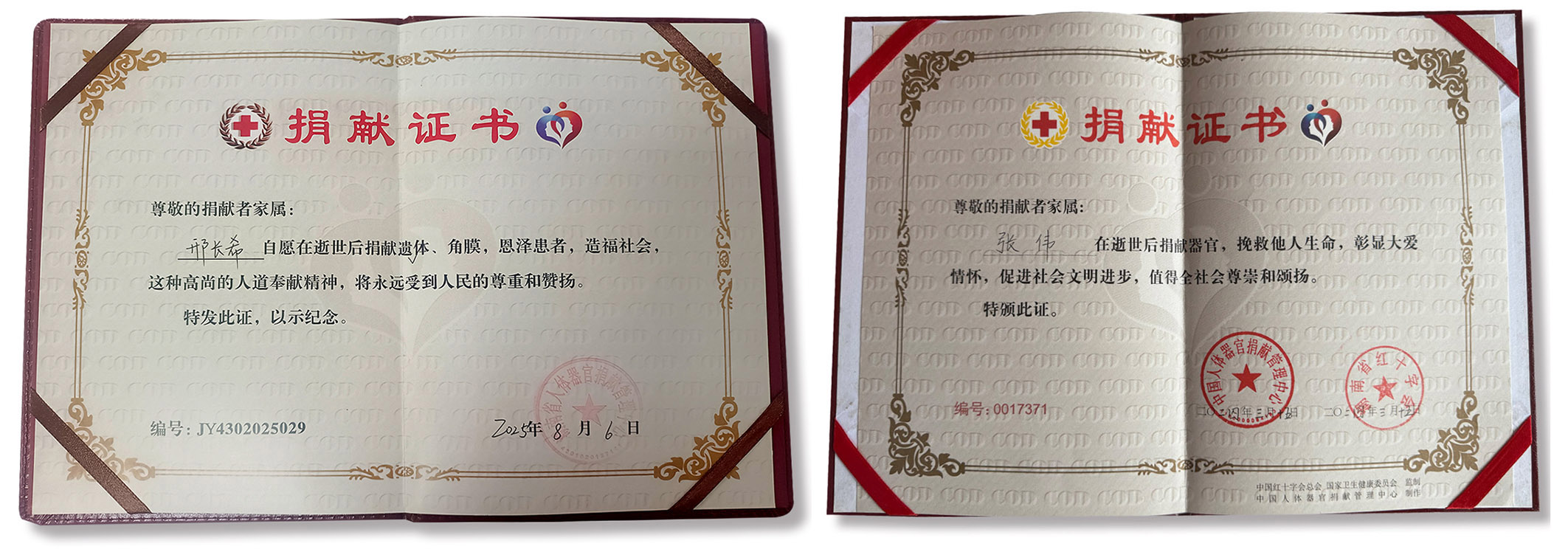
When Xing Changxi, a farmer from Gaotian village in Liuyang, Hunan province, passed away in August, his family followed his final wishes and donated his body to a Changsha-based university's medical school, where he became a "silent mentor".
For the next three years, his body will remain in the school to help student doctors learn about anatomy and better understand the sanctity of life.
Xing, 69, was the first resident in his village to register as a human organ donor.
By September last year, a total of 164 residents had signed up with the organ and body donation registry in a village that has an official population of around 7,200 people.
READ MORE: 'Ferrymen of life' ease organ donation process for patients' family members
Such a high donation ratio is rare in rural areas where traditional ideas about death and the human body are deeply ingrained. Xing's change of heart began in December 2018, when he read a newspaper article about organ donations.
It described how one donor's organs had saved three lives, and how another donated body had become a "silent mentor" in a medical school.
Xing contacted the local Red Cross branch and signed the body and organ donation pledge.
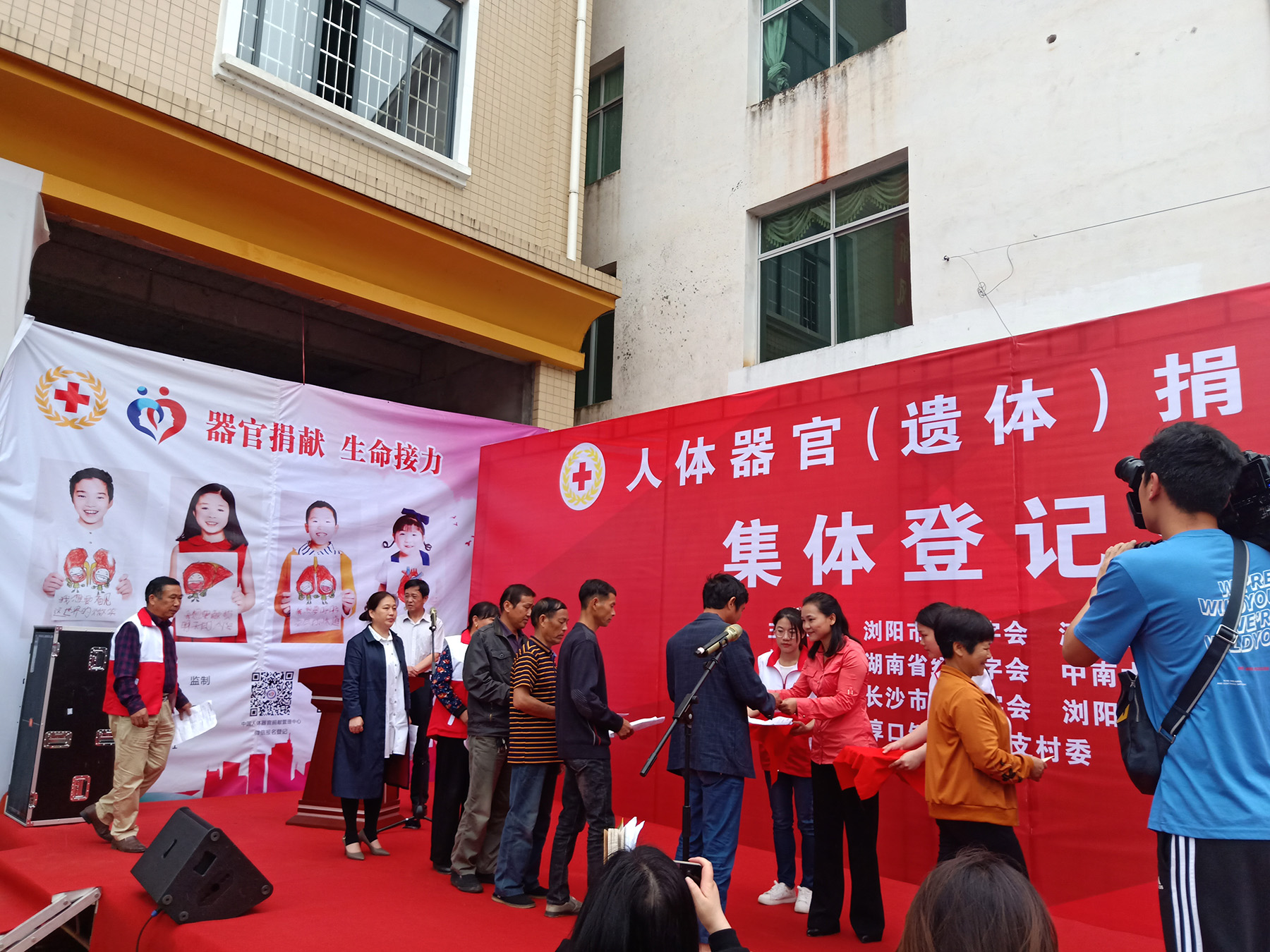
Luo Haigang, Party chief of Gaotian and president of the Red Cross branch, recalled that Xing's decision caused a ruckus among the villagers.
Luo said they asked questions such as: "He's still healthy, why would he want to donate his body?" and "Having parts removed, doesn't that mean he won't be whole in death?"
Xing didn't explain himself. He simply left a straightforward line in his will: "I wish to donate my body to help shift customs away from old practices and establish new ones."
Amid the controversy, a transformation began to take root in Gaotian.
China established a voluntary organ donation system in 2010, and made voluntary donation the only legitimate source of transplantable organs in 2015.
To date, the nation has carried out 58,000 posthumous organ donations, 63,000 body donations and more than 110,000 corneal donations, the China Organ Donation Administrative Center said in April.
As a result, the lives of around 170,000 patients with organ failure have been saved, and more than 100,000 individuals have regained their eyesight, it added.
The number of registered organ donors in China has exceeded 7.05 million, according to the latest data released by the center.
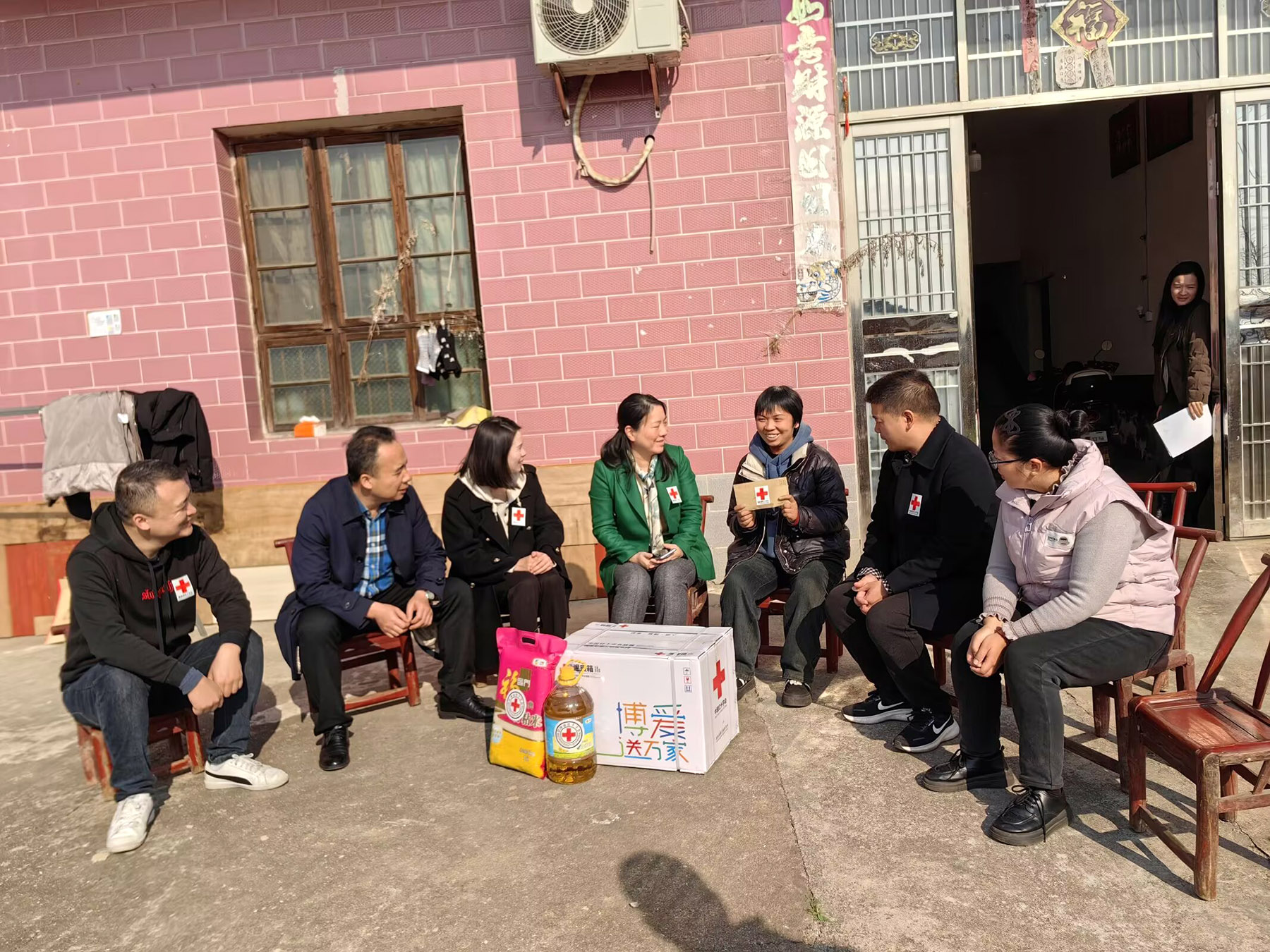
Changing attitudes
Luo recalled that over two decades ago, matters concerning death were "taboo subjects" in the village, and considered unlucky.
Most villagers held the traditional core belief that the body should remain "whole and intact" after death, reflected in sayings such as "fallen leaves should return to their roots".
"If someone accidentally mentioned it, they'd get a stern look from the elders, or be scolded for being 'ill-omened'," Luo said. "Organ donation was unthinkable. The idea that 'removing parts means the body isn't whole in death' was deeply ingrained."
Zhou Jiaoying, 60, felt this backlash keenly.
Along with Xing and another villager Yan Liuying, she was one of the first villagers to break with convention.
When her husband learned that she had registered as an organ donor, his reaction mirrored that of almost the entire village. He said: "Have you gone mad? Being cut open after you're gone? That's not just disturbing the deceased, it's bringing trouble to the family!"
According to the donation procedure, besides the individual's signature, consent from the spouse and all immediate family members is required. Although Zhou had signed the agreement, the donation certificate could not be validated because her husband objected.
However, it was the simple act of making a blood donation that began to change villagers' minds about the concept of "giving" when it comes to the medical needs of others.
Around 2010, a mobile blood donation vehicle arrived in Gaotian, and as a village official, Zhou decided to lead by example and donate 400 milliliters of blood.
After making the donation, Zhou declared to the villagers she "didn't feel unwell". She also appealed to their sense of family, saying that making a blood donation meant future generations would be catered for through such acts of generosity.
In the villagers' mindset, "family matters" are paramount.
Hearing that this could leave a "safeguard" for their children and grandchildren piqued their interest and they participated voluntarily.
Zhou has now donated blood totaling 3.2 liters on eight occasions.
Yan Liuying, 52, has become a frequent blood donor and signed up for the hematopoietic stem cell donation registry.
Some didn't understand her decision, even her own sister called her "foolish". But Yan, a tailor who has never left the village, simply felt that "being able to help others is a good thing".
Gradually, the villagers realized that "giving" could protect their loved ones and also help strangers.
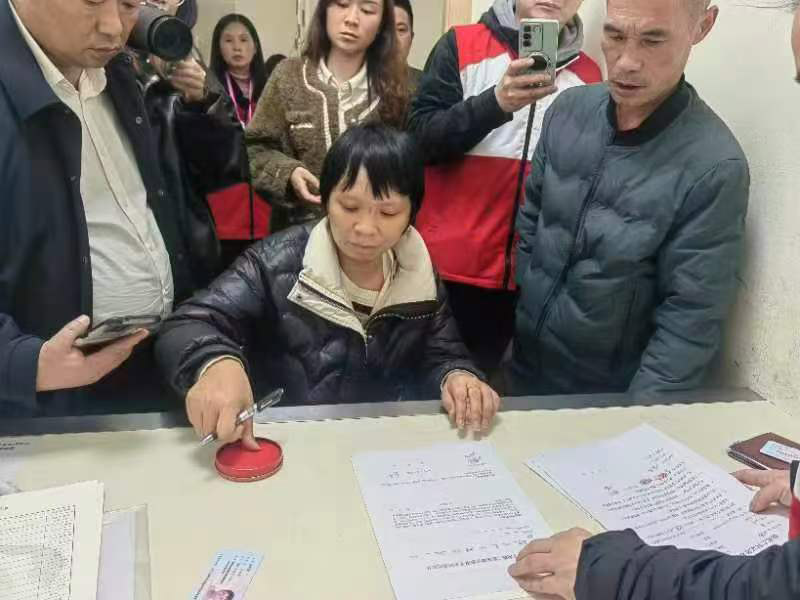
Inspirational documentary
The Gaotian Village Red Cross branch was established in 2018.
Shortly after Xing signed the body and organ donation pledge — sparking heated discussion among villagers about the subject — the documentary A Team of One was screened in the public square.
The film tells the story of Ye Sha, a 16-year-old from Changsha whose untimely passing became a beacon of hope. Through his organ donations, seven patients were given a second chance at life. In a heartfelt tribute, the recipients united as "Team Ye Sha" to honor his memory and realize his unfulfilled basketball dream.
Many villagers were deeply moved by the documentary. In the three days after the screening, 43 villagers inquired about organ donations.
"Xing was the first to pierce that window paper, letting everyone see that this is actually a form of broadmindedness, a great love," Luo, the Party official, said.
Ye's story helped everyone understand that one person's donated corneas, liver, and other organs can "live on" in others, he explained.
Another key driver of change was Peng Lingling, who received a kidney transplant.
In 2001, she was diagnosed with kidney failure and needed a transplant, but matching donors were scarce. Her husband Zhang Deda was desperately worried about what might happen to her if a donor couldn't be found.
Fortunately, a match was found within just two months. She shared her personal story with her fellow villagers at a gathering, and showed them the scar from her surgery.
Because of their experience, the couple wanted to repay their "stroke of luck".
On May 21, 2019, the Red Cross Society of China Hunan Branch held a collective registration ceremony for voluntary body (organ) donation in Gaotian. Peng and her husband went early to sign the donation pledges. Their son and daughter-in-law also signed up.
The total number of registrations on the day was 88, with the oldest person 85 and the youngest just 20. Luo said many people who couldn't attend the event signed up later, taking the total to more than 100.
All the Party members and officials of the village also signed the body and organ donation pledge.
Now in her 60s, Peng remains healthy enough for farm work and square dancing, and lives the life of an ordinary villager. "Thanks to that kind donor who gave me a kidney, I've lived all these extra years. Now we also want to be the kind ones, to help others," Peng said.
Villager Zhou Jiaoying said she persuaded her husband to consent to her becoming a donor. "I told him, 'If I die first, my organs could still be living in someone else. When you miss me, just think I'm still helping people'," Zhou recalled.
Luo said before the 2019 registration ceremony, "it was one person walking ahead, now there's a group of people following".
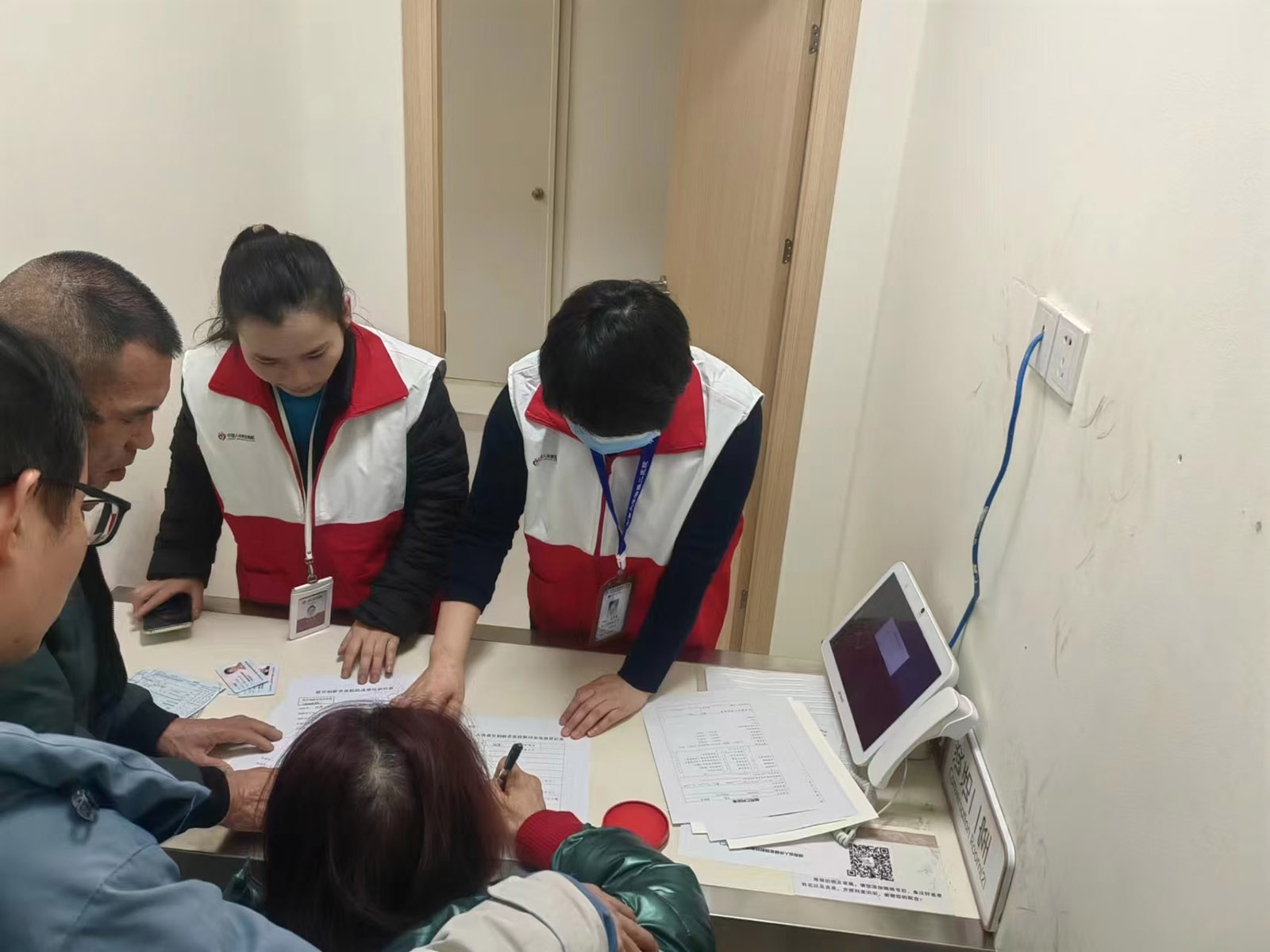
Hope for others
In March last year, villager Zhang Wei, 41, suffered a sudden heart attack, and despite resuscitation efforts his condition deteriorated and he was declared brain-dead.
Honoring his wishes, his family donated his liver, kidneys and corneas.
Luo said Zhang Wei's donation allowed three critically ill patients to have a second chance at life and restored sight to two blind people. His act pushed the belief in the positive outcomes of organ donations among villagers to new heights.
"Before, people thought 'this matter has little to do with me', but Zhang Wei made everyone realize that accidents can happen anytime. If you can prepare in advance, you can leave hope for others," Luo said.
That same year, Zhang Fengshou, a villager living on a subsistence allowance, also passed away.
He had specifically instructed the village committee regarding his final affairs, saying he had lived on subsistence allowances his whole life, and wished to donate his corneas after his death to make a contribution.
Zhang Dingcai, 43, who registered as a donor in May 2019, said he drew inspiration from Zhang Wei and the love and generosity of his family.
A car accident over a decade ago left Zhang Dingcai wheelchair-bound, but he faces life with optimism and positive energy.
He said that as a person with a disability, he has received a lot of care and wanted to give back to others. "It would be a noble thing if my life could live on in someone else after I'm gone," Zhang Dingcai said.
These notable acts of selflessness have set the example for others in the community. Luo said when villagers talk about Xing Changxi, Zhang Wei, and Zhang Fengshou — they say the three donors' lives were not lived in vain.
"Now, discussing organ donation is as ordinary as discussing farming," he said.
Lasting legacy
Qiu Mengdan, deputy president of the Red Cross Society of China Hunan Branch, said Gaotian had popularized the significance of organ donation to villagers through vivid and accessible methods.
Hunan has 272,000 registrations for human organ donations. Those aged 35 and below account for over 76 percent of registrations, Qiu said.
ALSO READ: Donations of organs going up in nation
Gaotian's leadership on the issues is apparent in the statistics. After 2019 — the year the village held its collective organ donation registration event — the following five years saw an almost a seven-fold increase across the province compared with the previous five years, she said.
The Hunan branch applied for a special humanitarian relief fund from the provincial finance department to provide consolation items, Qiu said.
From 2016 to September, it has disbursed 24.99 million yuan ($2.67 million) in relief funds, benefiting 1,580 families of organ donors facing financial difficulties.
Zhu Youfang contributed to this story.
Contact the writers at hechun@chinadaily.com.cn


